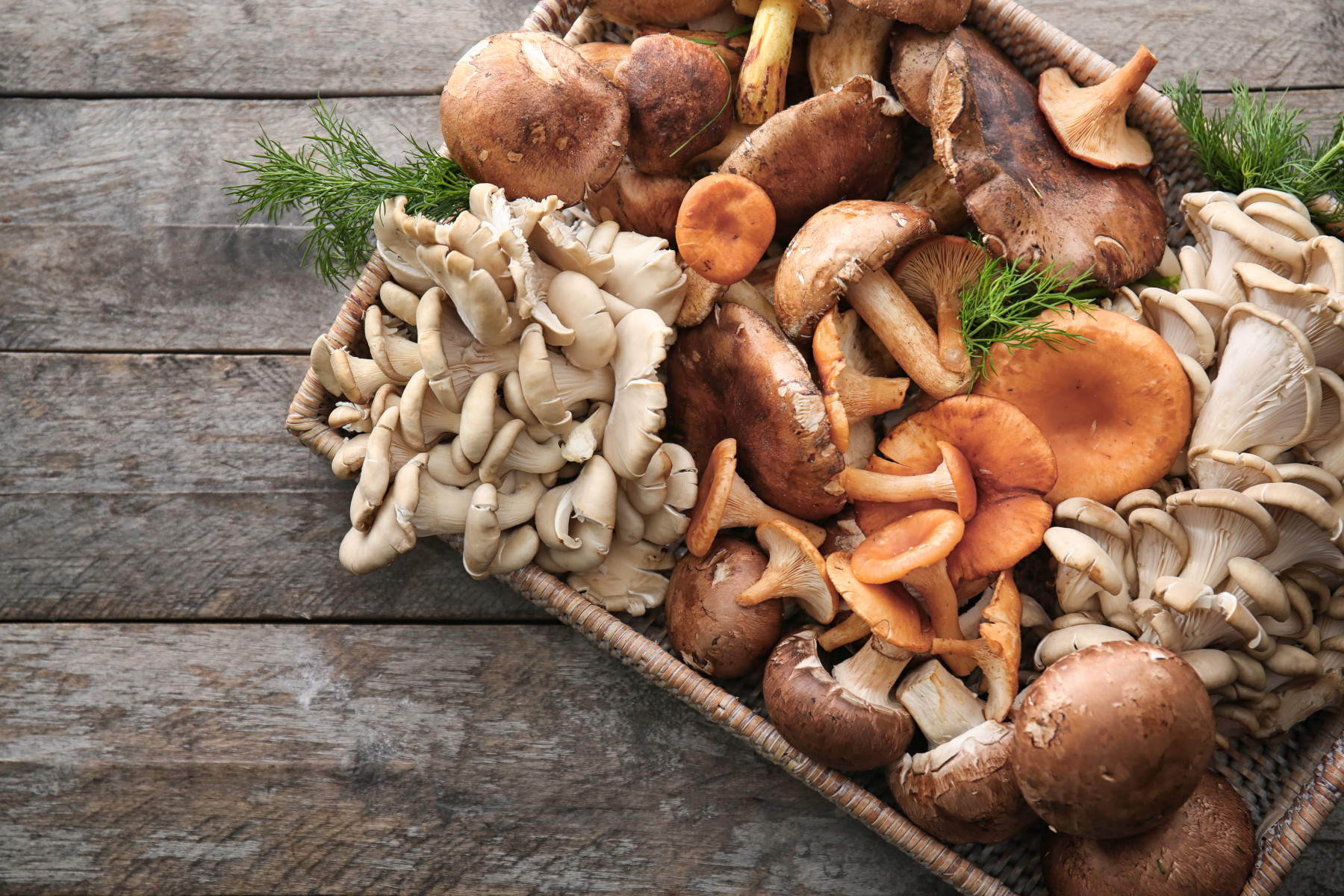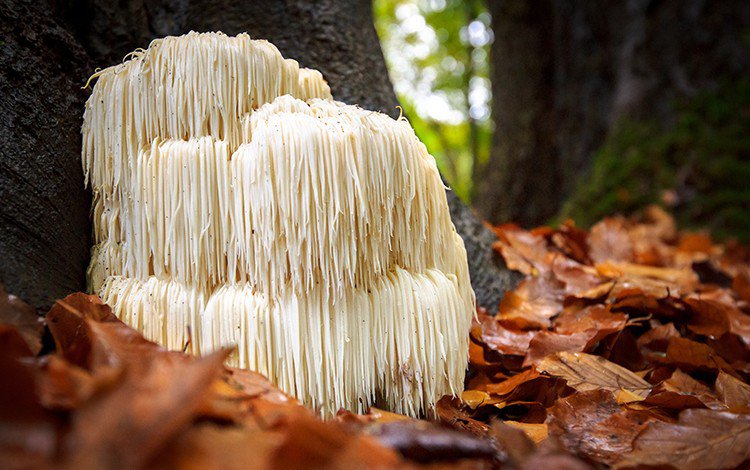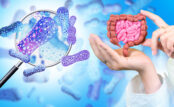You’ve probably heard many high claims about mushrooms, from weight loss and lower blood pressure to their effect on immune function – and of course, their ability to fight cancer.
Are these true or false?
The quick ‘nutshell’ answer to that: they appear to be true – and least partly. Granted, there is plenty we don’t know about these mysterious little fungi, and many variations of them. But it’s true that some species of mushrooms have incredible healing power. A closer look reveals why, and why Mushroom Defense is the all-star version of the best mushrooms for your immune system.
And find out the, “Best Supplements For Your Health in 2021.”
Mushroom Nutrients: What They Bring To Your Health
It’s not a secret that mushrooms bring plenty of health-boosting nutrition. Among other nutrients, mushrooms are a great source of[1]:
Antioxidants – These are molecules that fight age-accelerating free radicals, which are linked to a variety of health ailments from cancer to heart disease. Antioxidants also help you age slower and help the immune system. Mushrooms in particular are a rich source of an antioxidant called selenium, which has wide-reaching health benefits[2].
Beta Glucan – This is a dietary soluble fiber linked to improved cholesterol and better heart health. It also appears to help regulate blood sugar, which in turn, may lower your risk of type 2 diabetes.
B Vitamins – Mushrooms are just packed with B vitamins, including riboflavin, niacin and pantothenic acid, which combine for improved health of the heart, your skin, digestive system, red blood cells, the nervous system and hormone regulation.
Copper – Mushrooms are also a true copper mine – and not the one with hard hats and explosives. Copper is a mineral that helps the body make red blood cells, which move oxygen throughout the body.
It serves other functions too, like maintaining your bones and nerves. A single cup of cooked mushrooms may provide about a third of your daily recommended copper intake.
Potassium – Potassium health the heart along with muscle and nerve function. Cook two-thirds of a cup of portobello mushrooms and you’ve got about the same amount of potassium as you’d get in a medium -sized banana.

Do Mushrooms Prevent Cancer?
Possibly – but studies continue. Some evidence suggests that selenium may lower your of several kinds of cancer[3], and mushrooms are a good source of this powerful antioxidant.
One kind of mushroom in particular, called turkey tail, is high in a compound called polysaccharide-K (PSK), which helps stimulate the immune system and is approved as an anti-cancer drug in Japan[4]. It’s also shown to increase survival in patients with some kinds of cancer[5].
Granted, we’re not saying mushrooms are a substitute for a doctor-prescribed doctor treatment. We’re just saying that mushrooms are an area of interest for their potential ability to inhibit some cancers. It’s an exciting area to watch as we learn more about mushrooms and what they bring to the fight against cancer.
Health Benefits of Mushrooms
So what else to mushrooms bring to your overall health? Quite a lot, actually. Mushrooms are packed with health-boosting nutrients that serve a variety of functions. The health benefits of mushrooms include[6]:
Lower Blood Pressure – Sodium, meet potassium – a mineral that helps reduce the former’s negative effects in the body. Among other things, potassium helps reduce tension in blood vessels, which might help reduce blood pressure.
Help Immune Function – Yes, mushrooms may help you have fewer sick days. Some research suggests that mushrooms stimulate microphages in the immune system, which may increase its ability to fight off threats.
Weight Loss – Want an easy way to lose weight? Put a few mushrooms on your plate. Studies show that mushrooms, when combined with exercise and other lifestyle factors, may help folks hit their target weight. Here’s how that looks: in a clinical study, folks who swapped 20% of their beef intake with mushrooms showed a lower BMI and belly circumference.
As we’ve already discussed, mushrooms are also high in antioxidants, which have a variety of health applications, from prevention of Alzheimer’s and heart disease to cancer and diabetes.
Our point? Mushrooms pack a wallop – and then some. And when you consider their light calorie hit on your waistline, and their great taste, mushrooms are a tiny, yet mighty way to help your body do its job.
6 Mushrooms To Check Out
With over 14,000 species of mushrooms, you’ll likely want to narrow things down a little. Here’s the quick version of the healthiest mushrooms[7] – the ones that are not only edible, they’re also the centre of medical research:
Reishi Mushroom – The Stress Buster
Feeling stressed? Put down the Xanax and pop a little reishi mushroom. That’s the conclusion of several studies which suggest that reishi has calming properties, in no small part because of a compound called triterpene, which may help reduce anxiety, ease depression and even help you sleep better[8].
What It Might Help: Sleep, Anxiety, Depression, Focus

Lion’s Mane – The ‘Get Smart’ Mushroom
Could mushrooms be the next Limitless pill? They may not help you destroy the stock market, but lion’s mane is a mushroom that helps with mental clarity and may reduce brain fog. That’s in no small part because it helps to create a bioprotein called nerve growth factor (NFG)[9] and an insulator of nerve fibers, called myelin.
Both of these are essential to brain health. In fact, an imbalance of the two are linked to neurological diseases, like Alzheimer’s and multiple sclerosis.
Lion’s mane is also linked to better cognition[10], sharp memory and less anxiety. Plus, it looks like a lion’s mane, which is kinda cool.
What it Might Help: Brain Power, Memory, Focus
Chaga – For A Cocktail of Antioxidants
Sometimes you want to get medieval on age-causing free radicals. There are different ways to do that, but an easy way might be to put chaga mushrooms on your plate. Here’s why: chaga is just packed with free radical-destroying antioxidants that help reduce inflammation.
That has a variety of health applications, from younger skin to lower cholesterol and, potentially, prevention or slower growth of some cancers[11].
What it Might Help: Aging, Inflammation, Lower LDL Cholesterol
Shiitake – It’s Good For Your Heart
Shiitake is a popular mushroom. You may be familiar with it already, and if you currently use it in your cooking, keep doing it. Shiitake is good for your heart – it’s linked to lower LDL cholesterol[12] and has phytonutrients that appear to help prevent plaque buildup[13].
Shiitake mushrooms also help maintain healthy blood pressure and circulation.
What it Might Help: Lower LDL Cholesterol, Heart Health, Blood Pressure and Circulation

Turkey Tail – The Cancer-Fighting Mushroom
Brace yourself, we’re going to use the ‘C’ word: Cancer. There, we just said it, and now we’re going to talk about one mushroom that might beat it up six ways from Sunday. That would be turkey tail, which has PSK – the compound we’ve already talked about that helps the immune system. Evidence suggests turkey tail might increase the odds of survival in patients with several forms of cancer. It may also fight leukemia cells[14].
Bear in mind that most of the other mushrooms we’ve talked about may have anticancer properties. However, turkey tail seems especially promising – although more studies are needed, and it’s not a substitute for any cancer treatment prescribed by your doctor.
What it Might Help: Immune Function, Antioxidants, Cancer Resistance
Cordyceps – For More Energy
If you’re feeling lethargic, mushrooms to the rescue!
Yes, we know you think a Red Bull might be more appropriate (if not rather unhealthy), but cordyceps are a mushroom that boost both energy and the sex drive.
That’s likely because cordyceps help the body use oxygen more efficiently and allows for better blood flow[15].
Read that last sentence again and you’ll see that cordyceps may have other health applications too. With better oxygen use and more blood flow you may also have better exercise stamina[16] and athletic performance[17].
You may also find that cordyceps help you recover faster from an intense workout.
What it Might Help: Energy, Athletic Performance, Muscle Recovery

Why We Like Mushroom Defense
You’re reading this article because you’re interested in the health benefits of mushrooms. As we’ve seen, they pack quite a punch. Yet if you’re not keen to cook them, or simply want an easy way to put the healthiest mushrooms in your life – and in your body – we’d point you in the direction of Mushroom Defense.
Why It Pops: There are many mushroom supplements out there. We like Mushroom Defense because it’s got corcydeps, reishi, shiitake, lion’s mane, chaga and turkey tail, along with several other powerful mushrooms, in a convenient supplement that gives you the ‘all-star’ version of mushroom health benefits.
It’s made in the United States by the same company that makes GenF20 Plus – an anti-aging HGH supplement recommended by Dr Steven Lamm of The View that helps people age slower. The company has clearly taken that expertise and crafted a mushroom supplement that puts the healing power of mushrooms in a well-dosed and crafted formula available in one place.
We like the convenience of Mushroom Defense, and the quality of the formula. And if you’re looking for the incredible power of mushrooms, Mushroom Defense is a great place to start.
Learn More At:
Not a fan of mushrooms? Try Elderberry after reading our post, “The 8 Immunity Boosting Benefits of Elderberry.”
[1] https://www.healthline.com/health/food-nutrition/are-mushrooms-good-for-you#Nutritional-benefits-of-eating-mushrooms
[2] https://www.healthline.com/nutrition/selenium-benefits#4.-Helps-prevent-mental-decline
[3] https://www.ncbi.nlm.nih.gov/pmc/articles/PMC4073179/
[4] https://bastyr.edu/news/general-news-home-page/2014/10/cancer-researchers-present-turkey-tail-findings-japan
[5] https://pubmed.ncbi.nlm.nih.gov/7910230/
[6] https://www.webmd.com/diet/health-benefits-mushrooms#1
[7] https://www.healthline.com/health/food-nutrition/best-medicinal-mushrooms-to-try
[8] https://pubmed.ncbi.nlm.nih.gov/22207209/
[9] https://pubmed.ncbi.nlm.nih.gov/24266378/
[10] https://pubmed.ncbi.nlm.nih.gov/18844328/
[11] https://synapse.koreamed.org/articles/1051060
[12] https://pubmed.ncbi.nlm.nih.gov/11520942/
[13] https://pubmed.ncbi.nlm.nih.gov/3443885/
[14] https://pubmed.ncbi.nlm.nih.gov/12470440/
[15] https://www.ncbi.nlm.nih.gov/pmc/articles/PMC3909570/
[16] https://www.ncbi.nlm.nih.gov/pmc/articles/PMC4174424/
[17] https://www.liebertpub.com/doi/abs/10.1089/acm.2009.0226






